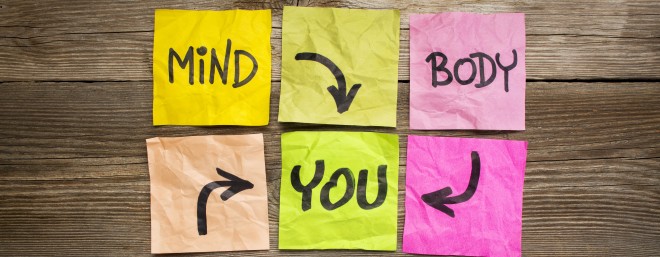
Clinic News
It's been a very busy month as Troy completed her PRTS ( Post-registration training) and is awarded her certification by the Royal College of Chiropractors – congratulations Troy. Jo jumped into life at the clinic looking after Jenny's clients as she starts her maternity leave and Alex swanned off to Bournemouth to a recruitment day in hope of finding a new chiropractor to join the team in the summer.
Ideas are coming together to fund our 30 trees and Alex is getting the waves rolling as she commits to a 100-mile swim over the next year - join her or sponsor her - see the website for details: http://www.beestonchiropractic.co.uk/30th-anniversary-trees-fundraising-events/
We are also looking for artists to design a logo for our 30-year celebration - Nottingham talent is good enough for the Queen's 70th anniversary so why not for us! Plus, we know how much you love baking and eating cake so we have a bring and buy cake sale organised. In addition, we would like to steal your famous recipes and make them into a small booklet so others may share. Our final idea, for now, is to invite all you lovely crafty people to display and sell your work in the reception area for a week for a small table fee. If you make jewellery or grow plants, make cards or knit we want to see it and help you sell it!
All this information is on the website so check out the details or ask at reception about how you can get involved.
This month we focus on stress and how to deal with it from understanding how we can control it to actively supporting ourselves to combat it.
Don't forget we still have roadworks on Queens Road till 17th April so please leave plenty of time for arriving for your appointment. And finally, we are still wearing masks at the clinic - please bring your own as we are running low - you will be asked to make a donation to our tree fund if we have to provide you with one.

Cortisol
Cortisol is the body’s main stress hormone and is well-known for triggering the “fight or flight” response in our bodies when we are stressed. However, cortisol is also responsible for regulating a wide range of processes throughout the body.
What is cortisol?
Cortisol is a steroid hormone produced in the adrenal glands, which is then released into the blood and transported around the body.
What does cortisol do?
Almost all our cells contain receptors for cortisol, meaning it plays an important role in several things your body does. For example, cortisol:
- Manages how your body uses proteins, carbohydrates, and fats
- Regulates blood pressure
- Increases blood sugar
- Keeps inflammation down
- Controls your sleep/wake cycle
- Boosts energy
The short-term release of cortisol can give your body energy to fight or flee from a stressor, but it is possible for our cortisol levels to become unbalanced.
Too much stress
Usually, cortisol levels balance when the stress your body was reacting to passes. However, when cortisol levels are too high for too long, the hormone can have a negative impact on your body.
There are some health issues associated with high levels of cortisol over a prolonged period, including:
- Weight gain
- High blood pressure
- Insomnia or difficulty sleeping
- Mood irregularities
In women, this can impact periods causing them to become irregular, less frequent or stop altogether.
Cortisol levels have also been linked to conditions like anxiety or depression.
Managing cortisol levels
There are some lifestyle habits that can help you to manage cortisol levels.
- Sleep
Getting the right amount of sleep can be an effective way to reduce cortisol levels. Several things can be done to optimise your sleep, such as limiting caffeine intake, avoiding nicotine or alcohol, and implementing a regular sleep schedule.
- Exercise
Exercise can increase or decrease cortisol, depending on the intensity. Intense exercise can increase cortisol levels afterwards, which will decrease a few hours later.
However, regular exercise can also help with managing stress and promoting good health, which may help lower cortisol levels.
- Eating a nutritious diet
When trying to lower cortisol levels, it is important to eat a healthy and balanced diet, paying attention to sugar intake. Fruits, vegetables, healthy fats, and even dark chocolate are thought to be helpful for managing cortisol.
Similarly, it is important to ear on a regularly because low blood sugar can increase cortisol.
- Staying hydrated
Dehydration has been linked to temporary increases in cortisol levels, meaning it is important to drink enough water throughout the day.
- Breathe
Deep breathing is a simple and effective way to reduce stress. It can stimulate the parasympathetic nervous system, which is associated with relaxation and lower cortisol levels. Meditation or yoga are just two examples of ways to practice deep breathing.

Mindfulness for our Wellbeing
Whether you have an important work meeting, an appointment to book, or an errand to run after work, everyone is susceptible to dealing with a long to do list. Living a fast-paced lifestyle often means neglecting some of our thoughts and pushing them to the back of our mind. However, when we do this, we are stressing ourselves out more than we realise, and this stress can often trickle back into our body physically. Muscle tension or inflammation can be caused by an overload of stress in our life.
Mindfulness is the practice of becoming aware of yourself in the present moment, enabling you to identify how you feel inside and out. With this mind-body approach, you can clear your mind of negativity and unnecessary stresses and ultimately, help against physical aches and pains. Mindfulness also allows you to understand the pain you might be feeling and how to ease any anxiety associated with it. If constant stress is untreated, it can lead to increased tension, forming a continuous cycle of pain. As well as stress and chronic pain, mindfulness can help combat anxiety, sleep and eating disorders. Mindfulness can also increase our positivity and energy levels which overall encourages a healthy lifestyle.
Mindfulness has many benefits to your general wellbeing and your physical health. Next time you are feeling stressed or overwhelmed, take 10 minutes out of your day to practice mindfulness with these five tips:
- Sit comfortably and relax
- Focus on your breath
- From your head to toes, bring awareness to each body part
- Identify any sounds or smells and let them pass
- Acknowledge and accept how you feel emotionally

Spring into Health with Chiropractic Care
Spring is in the air, and it is time to get outside and enjoy it! With warmer weather around the corner, there will be an increase in outdoor sport activities. The best way to take full advantage of this season is to keep your health in tip top shape as well. Here are a few ways in which chiropractic care can help you to stay on top of your health and prepare you for the season ahead.
- Regular chiropractic adjustments can help prevent injuries
No matter what type of outdoor activity you plan to take part in this spring, regular visits to your local chiropractor are helpful in reducing the risk of injury, ensuring you are not putting too much strain on your joints, and checking that your nervous system is functioning normally. Whether you are running, riding a bike, playing ball, gardening, or spending time outdoors with your kids, plan a visit to your doctor to learn the best practices to keep your muscles and joints healthy in order to reduce the risk of injury and pain.
- Chiropractic care can help reduce the stress of a busy spring season
With warmer weather comes busier spring schedules. Whether your calendar is booked because you are spending more time with your kids as they have time off from school, or dealing with a busier work schedule, stress seems to be inevitable as the seasons change. Regular chiropractic care is a great way to reduce and prevent stress that can negatively affect your joints and overall health.
The bottom line is that in order to assure you get the most out of the spring season, and stay on top of your health, you need to take care of yourself.
For more information, talk to your chiropractor, to learn how you can ‘spring’ into your best health and start your path to a healthier, happier, and pain-free lifestyle.

Eating to beat stress
Chronic stress can have a negative effect on our physical health as well as our mental wellbeing. It can play a role in our susceptibility to illness and disease, but also in day-to-day functional problems such as pain and stiffness.
There are many steps we can take to improve our ability to cope with stress; nutrition is one of them. Find out what and how to eat to better manage stress…
Balancing your blood sugar
To cope well with stress, we need our food to provide us with balanced, sustained energy. Foods that quickly break down into glucose and are quickly absorbed – such as sugary foods and fast-releasing carbohydrates – may give us a burst of energy, but can cause our blood sugar to peak and then dip. This can actually increase our body’s stress response and stress hormone levels, as well as making us feel irritated and out of control.
Here are the three fundamental steps to balancing your blood sugar:
- Eat primarily whole foods: vegetables, animal foods (eggs, fish, unprocessed meat, unsweetened dairy foods), nuts and seeds, beans and lentils, and some fruit. Avoid sugary snacks, refined carbohydrates and other processed foods such as breakfast cereals
- Making sure every meal includes a good serving of protein, healthy fats, and complex carbohydrates. The primary protein foods are the animal foods mentioned above, and nuts and seeds, and beans and lentils. Healthy fats are found in nuts and seeds, oily fish, avocadoes, and coconut. Complex carbs are found in vegetables, whole fruit (i.e. not fruit juices), whole grains, beans and lentils
- Eat regularly. Skipping meals or leaving too long between meals can cause your blood sugar level to drop too low, which can also trigger a stress response
Getting enough food
As well as eating regularly, getting enough food is important when you’re dealing with stress. Going on a weight loss diet – whether it’s low-calorie, low-carb or low-fat – during a stressful time can be particularly bad for your stress levels. Instead, now is the time to focus on balancing your blood sugar as outlined above, by eating regular meals, getting enough protein, healthy fats and non-starchy vegetables and cutting the refined carbohydrates and junk foods. You should find it easier to manage your weight – or lose weight – by eating in this way anyway.
Healthy snacking
Although regular snacking is not the best thing for everyone, it can be helpful if you’re coping with stress, again by helping to keep your blood sugar on an even keel. Your snacks need to be based on whole foods, and contain some protein and complex carbohydrates.
Examples include:
- Two or three oatcakes with one of the following: a tablespoon of hummus, guacamole, cottage cheese, half an avocado, a hard-boiled egg or a teaspoon or two of nut butter (e.g. almond butter).
- A pot of natural yoghurt (without added sugar) with some berries and/or a tablespoon of pumpkin seeds mixed in.
- A wedge of left-over home-made frittata/omelette.
However, you shouldn’t need to be snacking more than once between meals; constantly ‘grazing’ can have a negative effect on your weight and your digestion!
Magnesium-rich foods
The mineral magnesium plays a vital role in our psychological health, including our mood and how well we cope with stress. It’s thought that both physical and emotional stress can increase the body’s need for magnesium; and that having a low magnesium to calcium ratio can actually increase the release of stress hormones such as adrenaline.*
The best food sources of magnesium are green leafy vegetables such as kale, chard and spinach; seeds and nuts; and whole grains – especially buckwheat and rye.
B vitamin-rich foods
Like magnesium, B vitamins also play a vital role in our energy as well as our psychological function.
The various B vitamins are found in different foods, but the best all-round sources include eggs, oily fish, organ meats (especially liver), seeds and nuts, and beans and pulses. Luckily these are also foods that are great for our blood sugar balance!
Avoid overdoing stimulants
Many of us turn to stimulants such as tea and coffee when we’re feeling stressed. But stimulants of any kind also trigger the body’s stress response. Try to keep your coffee consumption in particular to a minimum. Tea can have a gentler stimulating effect so can be better tolerated, but keeping it to one cup a day can still be advisable. Try to introduce calming herbal teas such as chamomile and spearmint – especially later in the day.
Note that alcohol can also act as a stimulant as well as a relaxant. It also disrupts your blood sugar balance. Keep alcohol to a rare treat and stick to one drink only.
* Seelig MS. Consequences of magnesium deficiency on the enhancement of stress reactions; preventive and therapeutic implications (a review). J Am Coll Nutr. 1994 Oct;13(5):429-46.
We treat all conditions that affect any muscle or joint in your body, from your head to your little toe! One of the most common complaints that we treat is back pain and Chiropractic is recommended by the government authority, the National Institute for Clinical Excellence (NICE) for acute and chronic back pain. Some of the other conditions that we treat are neck and headache, shoulder pain, leg and hip pain, knee and foot pain, sciatica and arthritis. Our registered Chiropractors all have at least five years of training. Treatment costs can be covered through most health insurers. If you are in any doubt, we are always very happy to talk with you on the phone to see if your condition will respond well to Chiropractic treatment. Call the clinic now to arrange an appointment time that works for you. 0115 9225085 If you would like to opt-out of receiving these newsletters please follow the unsubscribe link below, email alex@beestonchiropractic.co.uk or let us know at your next appointment.





